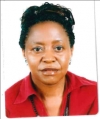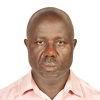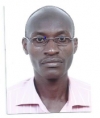Alfredo Guarino
ID:
|
Acute gastroenteritis as a presenting symptom for malaria
REFNo: HS225ES
The aim of the study is to investigate the prevalence of Acute Diarrhea in Children with Malaria in Northern Uganda, a high-transmission malaria setting where there is paucity of data on the etiological agents of childhood diarrhea.
There is a solid scientific basis that could explain the pathogenesis of diarrhea in severe malaria.
The starting point for our working hypotheses is the positive feedback of Ugandan and Italian Doctors who have been working in Lacor Hospital’s Children Ward, whose practical and clinical experience seems to confirm an increased rate of GI symptoms in children with malaria.
There are previous clinical controlled Studies on the subject, however, despite the scientific premises and the clinical observations, these Studies have produced inconsistent and inconclusive results, and eventually failed to demonstrate a statistically significant prevalence of diarrhea in children with malaria. Moreover, setting, study groups and secondary endpoints differ from our Study.
In conclusion and to the best of our knowledge, our Study would be the first to show a statistically significant association between acute diarrhea and malaria. The Study would also be the first to be performed since the introduction of artemisinin-based therapies for the treatment of malaria. Investigating the time of response, and the factors affecting an early (< 24 h) or late resolution (>24h) of diarrhea could provide new extra information on the clinical outcomes of children with GI symptoms during severe malaria treated with IV artesunate and ACTs and provide new prognostic factors on admission.
|
Italy |
2019-02-05 |
2022-02-05 |
Medical and Health Sciences |
|
Non-degree Award |

|
Irene Lubega
ID: UNCST-2019-R000658
|
Immunogenicity of Fractional One-fifth and One-half Doses of Yellow Fever Vaccine Compared to Full Dose in Children 9-23 months old in Uganda
REFNo: HS244ES
Primary
• Assess whether seroconversion following one-fifth (0.1 ml) and one-half (0.25 ml) doses of YF 17DD vaccine is non-inferior to seroconversion following a full dose (0.5 ml) at 4 weeks post-vaccination in children aged 9 – 23 months
Secondary
• Assess whether the proportion of baseline seronegative children that are seropositive following one-fifth (0.1 ml) and one-half (0.25 ml) doses of YF 17DD vaccine is non-inferior to the proportion seropositive following a full dose (0.5 ml) of vaccine at 12 months post-vaccination
•
Compare the geometric mean antibody titers following the fractional doses to the geometric mean titer following the full dose at 4 weeks and 12 months post vaccination
• Describe the safety profile of fractional and full-dose YF 17DD vaccine in children 9-23 months
|
Uganda |
2019-02-05 |
2022-02-05 |
Medical and Health Sciences |
|
Non-degree Award |

|
Nicholas Chapoy
ID:
|
Title of research project: Dual articulation in the communication system of mountain gorillas?
REFNo: NS82ES
The emergence of combinatoriality (phonology and syntax) in human language represents one of the key evolutionary transitions in life (Maynard Smith & Szathmary 1995). Despite its significance, we know very little regarding how unique this capacity is to humans or the evolutionary progression of this trait. By searching for core features of language, such as its combinatoriality, in the communication systems of closely related species to humans, particularly the primates, it is possible to shed light on whether the components of language are de novo evolved traits in humans or whether they have their origins rooted in the primate lineage.
With this project, I aim to shed light on how unique combinatorics is to human language through empirically investigating the presence of linguistic forms of phonology and syntax in one of our closest living relatives, the gorilla.
|
USA |
2019-02-05 |
2022-02-05 |
Natural Sciences |
|
Non-degree Award |

|
Joshua Greenberg
ID:
|
Governance, Citizenship, and Accountability: Community-Centered Development in the Ugandan Health Sector
REFNo: SS265ES
This study examines the influence of governance structures on health outcomes in Uganda and tests strategies to foster more efficient healthcare delivery in the country. Specifically, the study will use a pilot randomized controlled trial to assess the feasibility and impact of several governance interventions. First, seeking to improve the performance of local leaders in ensuring quality health service delivery, the study will evaluate the following two community-level interventions: (a) quarterly citizen reporting meetings with Local Council III chairpersons on health service delivery and (b) chairperson skills training on monitoring local government health centers. Second, to study the determinants of citizen participation in meetings, the study will evaluate several different household-level encouragement messages within the meetings intervention group. The messages—which will separately emphasize (a) public duty, (b) social aspects, and (c) civic participation—will be aimed at motivating citizens to attend the quarterly reporting meetings. All of the interventions have been developed in collaboration with Progressive Health Partnership (a non-governmental organization) and the Office of the Prime Minister. This pilot study is meant to prepare for a larger study in the future.
|
USA |
2019-02-05 |
2022-02-05 |
Social Science and Humanities |
|
Degree Award |

|
lydia kapiriri
ID:
|
Evaluating Priority Setting for Health Research in Uganda
REFNo: HS309ES
1. Synthesize the current published and grey literature on PS for health research at the global level and specifically in Uganda.
2. Describe and evaluate a historical case scenario of PS for health research in Uganda.
3. Identify some of the barriers to effective PS for health research with particular relevance to governance mechanisms in Uganda.
4. Identify best practices that can serve to influence Ugandan PS for research processes and those of other low-income countries
|
Uganda |
2019-01-30 |
2022-01-30 |
Medical and Health Sciences |
|
Non-degree Award |

|
Emmanuel Kiiza Mwesiga Kiiza
ID: UNCST-2019-R001588
|
PREVALENCE, CORRELATES AND EXPLANATIONS OF A LONG DURATION OF UNTREATED PSYCHOSIS AMONG ANTIPSYCHOTIC NAÃVE PATIENTS AT BUTABIKA HOSPITAL: A MIXED METHODS STUDY.
REFNo: HS237ES
1. To determine the prevalence and factors associated with a long duration of untreated psychosis among patients with a first episode psychosis at Butabika hospital in Uganda.
2. Achieve a qualitative understanding of influence of prior treatment with alternative and complimentary therapies on duration of untreated psychosis among patients with a first episode of psychosis (FEP) presenting to Butabika hospital in Uganda.
|
Uganda |
2019-01-29 |
2022-01-29 |
Medical and Health Sciences |
|
Non-degree Award |

|
Samson Okello
ID: UNCST-2019-R001580
|
Epidemiology of Coronary Artery Disease among People with HIV in Rural sub-Saharan Africa
REFNo: HS267ES
Our over-arching goals are to demonstrate the extent to which coronary artery disease (CAD) burden may be greater among PLWH in rural Uganda, to discern which risk factors are responsible for this greater burden, and to propose a risk score and promising intervention targets to improve the health of this population.
Aim 1: Determine whether CAD is more prevalent and severe among PLWH than HIV-uninfected comparators in rural Uganda. We will complete coronary CT angiography in 600 participants and compare the prevalence and severity of CAD between PLWH and HIV uninfected comparators, before and after adjustment for traditional risk factors
Aim 2: Determine the extent to which the association between HIV infection and CAD is modified by sex and region. Within our cohort, we will test for effect modification by sex
Aim 3: Identify regional correlates of CAD, and develop a risk prediction score for the presence of CAD among PLWH in rural sub-Saharan Africa. We will collect data on traditional (e.g. age, smoking, diabetes), HIV-specific (e.g. macrophage activation, CD4 count, ART history), and region-specific factors (e.g. biomass exposure, K:T ratio, tuberculosis infection). In Aim 3a we will include traditional, HIV-specific and regional risk factors in models to identify correlates of CAD. In Aim 3b, we will propose a simplified risk score to identify PLWH with CAD.
|
Uganda |
2019-01-29 |
2022-01-29 |
Medical and Health Sciences |
|
Non-degree Award |

|
Rachael MacLeod
ID:
|
A prospective observational study of intraventricular haemorrhage (IVH) in a neonatal cohort in Uganda: The IVHU Study.
REFNo: HS299ES
Overall objective
To study the proportion of low birth weight (LBW) babies affected by IVH and to assess the severity of and risk factors for IVH and outcomes after IVH at Mbale Regional Referral Hospital in eastern Uganda over a 6-month period.
Specific objectives
In LBW neonates in a Ugandan population:
• Describe the proportion of babies affected by IVH.
• Describe the timing and severity of IVH.
• Describe the incidence of complications including ventriculomegaly and cerebellar involvement, as well as other pathologies such as periventricular white matter changes with and without cystic change (PVL).
• Determine the neonatal morbidities and neonatal mortality associated with IVH.
• Describe risk factors associated with IVH.
|
UK |
2019-01-22 |
2022-01-22 |
Medical and Health Sciences |
|
Non-degree Award |

|
Timothy Wakabi Waiswa
ID:
|
LINKAGE BETWEEN SCHISTOSOMA MANSONI INFECTION IN BABOONS AND HUMANS WITHIN FISHING VILLAGES OF KASESE AND RUBIRIZI DISTRICTS IN QUEEN ELIZABETH NATIONAL PARK
REFNo: HS293ES
i. establish prevalence of S. mansoni in baboons and humans living in the fishing villages and factors associated with the infection
ii. assess the knowledge and perception of people living in fishing villages in and around QENP on transmission of zoonotic Schistosomiasis
iii. determine the geospatial and genetic relationship between S. mansoni in baboons and humans in fishing villages in and around QENP
iv. assess feasibility of stakeholder-identified interventions for addressing Schistosomiasis within the fishing villages
|
Uganda |
2019-01-22 |
2022-01-22 |
Medical and Health Sciences |
|
Degree Award |

|
Ivan Kimuli Ronald
ID: UNCST-2019-R000577
|
Viral load monitoring among HIV infected patients at Mulago Hospital: Perceived barriers and facilitators
REFNo: HS261ES
1. To describe the viral load cascade at the HIV clinic of Mulago National referral hospital
2. To explore the barriers to and facilitators of viral load monitoring among HIV-infected adults at Mulago Hospital
|
Uganda |
2019-01-15 |
2022-01-15 |
Medical and Health Sciences |
|
Non-degree Award |

|
Florence Brisset-Foucault
ID:
|
Registering and Identifying People in Uganda A Historical Approach
REFNo: SS210ES
Today, norms and practices of biometric identification are objects of global fascination, curiosity, anxiety or scrutiny. Yet, in the case of Africa, identification documents have hardly been central to scholarship. In order to fill this important gap, this study proposes to focus on the history of official/administrative documents of identification in Uganda, as objects of governmentality (Foucault, 2004). A great variety of identification documentation will be included, as empirical objects of study: birth certificates, voters’ cards, introduction letters by Local councils, party-membership cards, as well as other forms of nominative documentation such as land certificates and drivers’ licenses. The idea is that the daily uses of these objects and the popular representations attached to them will inform us on the parameters of public action, ordinary social life, the imagination of identities and civic cultures. By better understanding Ugandans' previous experiences of identification, it is expected that this research will inform best practices in terms of the documentation and verification of identities, and of the implication of these processes on the State and on society.
|
France |
2019-01-15 |
2022-01-15 |
Social Science and Humanities |
|
Non-degree Award |

|
Alex Maxwell
ID:
|
'Post-conflict recovery in Gulu (North Ugandan Acholiland): Examining the impact of a decade of ex-combatant re-integration interventions on the coping strategies of communities, their social capital and the state of civil society.'
REFNo: SS243ES
This research aims to explore how viable ways of life are constituted by local communities in the North Ugandan post-conflict scenario. The post-Lord’s Resistance Army (LRA) peacebuilding project by the international community in Northern Uganda has resulted in no repeat of violence since the end of the conflict. However, there has been little effort to learn from the Ugandan experience concerning the critical conditions, which enables social repair to become possible following displacement by armed conflict. This research seeks to understand how displacement and return have affected social repair through the perceptions and understandings of the local people concerned. This contrasts with the focus from the perspective of ‘ex-combatants’ in the peacebuilding literature which analyses reintegration interventions. This research focuses on an under researched area: the role of the community in the post-conflict reintegration process. The research uses a case study approach (detailed by Yin, 1989) with a focus on life histories, to examine how local communities in Gulu, often referred to as the ‘recipients’ of international projects, have negotiated reintegration and social repair through their interactions with ex-combatants. Further, the research examines how external intervention has affected the Gulu communities’ own understandings of life after conflict within a ten year period (2008-present).
|
UK |
2019-01-15 |
2022-01-15 |
Social Science and Humanities |
|
Degree Award |

|
BOSCO AGABA BEKIITA
ID: UNCST-2019-R000549
|
PERFORMANCE EVALUATION OF POTENTIAL POINT-OF CARE RDTs FOR THE DIAGNOSIS OF PLASMODIUM FALCIPARUM WITH PFHRP-2 GENE DELETION AT VARYING MALARIA TRANSMISSION SETTINGS IN UGANDA
REFNo: HS282ES
1. To determine the sensitivity of a range of malaria rapid diagnostic tests using microscopy as gold standard under the varying malaria epidemiological settings in Uganda
2. To determine the specificity of a range of malaria rapid diagnostic tests using microscopy as gold standard under the varying malaria epidemiological settings in Uganda
3. To establish the positive and negative predictive value of a range of malaria rapid diagnostic tests under the varying malaria epidemiological settings in Uganda
4. To determine the prevalence and geographical location of P.falciparum parasites with pfhrp2 gene deletion
|
Uganda |
2019-01-15 |
2022-01-15 |
Medical and Health Sciences |
|
Non-degree Award |

|
Gloria Odei Adobea
ID:
|
Utility of mid-upper arm circumference in case detection, admission, monitoring treatment and referral of children 6-59 months with severe acute malnutrition in Karamoja: a retrospective analysis
REFNo: HS304ES
To assess the utility of MUAC as an indicator for case detection, admission, monitoring treatment and referral of children 6-59 months with SAM in Karamoja.
|
Ghana |
2019-01-15 |
2022-01-15 |
Medical and Health Sciences |
|
Degree Award |

|
Emmanuel Kiiza Mwesiga Kiiza
ID: UNCST-2019-R001588
|
COGNITIVE IMPAIRMENT AMONG PATIENTS WITH A FIRST EPISODE OF PSYCHOSIS IN UGANDA: ASSESSMENT, RISK PROFILE AND IMPACT ON QUALITY OF LIFE.
REFNo: HS142ES
1. To review the evidence on the assessment of cognitive function using brief neuropsychological tests in patients with FEP in sub Saharan Africa.
2. To determine the validity of cognitive assessments delivered using a smart phone application in patients with FEP in Uganda.
3. To determine mean duration and factors associated with resolution of psychotic symptoms among patients with FEP in Uganda.
4. To determine the association between genetic and environmental factors (childhood trauma and DUP), and the development of CI in patients with FEP in Uganda.
5. To determine the association between impairment in specific cognitive domains and quality of life in patients with FEP in Uganda.
|
Uganda |
2019-01-08 |
2022-01-08 |
Medical and Health Sciences |
|
Degree Award |

|
Patrick Ogwok
ID:
|
Mediators of dietary and physical activity behaviors among women of reproductive age in urban Uganda-Kampala.
REFNo: HS290ES
To understand factors explaining dietary behaviors among women of reproductive age (18 to 45 years) living in Kampala
To understand factors explaining physical activity behaviors among women of reproductive age (18 to 45 years) living in Kampala
|
Uganda |
2019-01-08 |
2022-01-08 |
Medical and Health Sciences |
|
Degree Award |

|
Thereza Piloya Were
ID: UNCST-2019-R000491
|
VITAMIN D STATUS; ASSOCIATED CLINICAL AND BIOCHEMICAL FACTORS AMONG CHILDREN INFECTED WITH HIV AT BAYLOR PAEDIATRIC CLINIC, KAMPALA UGANDA
REFNo: HS294ES
1. To determine the prevalence of vitamin D deficiency among HIV infected children and adolescents aged 6 months-12 years at Baylor Paediatric HIV Clinic, Kampala.
2. To determine the clinical and biochemical factors associated with vitamin D among HIV- infected children and adolescents.
|
Uganda |
2019-01-08 |
2022-01-08 |
Medical and Health Sciences |
|
Non-degree Award |

|
Simon Peter Kayondo
ID:
|
PREVALENCE AND FACTORS ASSOCIATED WITH HEPATITIS B VIRUS INFECTION AMONG PREGNANT WOMEN ATTENDING ANTENATAL CARE CLINIC IN MULAGO HOSPITAL
REFNo: HS257ES
General objective
To determine the prevalence and factors associated with Hepatitis B Virus infection among pregnant women attending antenatal care clinic in Mulago Hospital.
Specific objective
1. To determine the prevalence of HBV infection among pregnant women, attending ANC clinic in Mulago Hospital.
2. To establish the factors associated with HBV infection, among pregnant women attending ANC clinic, in Mulago Hospital.
|
Uganda |
2018-12-20 |
2021-12-20 |
Medical and Health Sciences |
|
Degree Award |

|
Ben Jones
ID:
|
Educating institutions: A study of the influence of educated young women and men on local politics in Uganda
REFNo: SS232ES
In the Teso region of eastern Uganda there is a generation of young men and women in their twenties and thirties who are the first in their family to go to school. I want to investigate the effect this generation is having on local institutions – school committees, church groups, village courts, burial societies. What are the political entailments of education? Does education open up new paths to becoming influential? Does it help to reconfigure gender relations? Do educated youth approach politics in new ways? Available research on education in the developing world focuses on its economic impact, or on the spread of modern attitudes, particularly among male urban youth. Less is understood about the political consequences of education, or about the transformations taking place with the arrival of educated young men and, more especially, women, in the countryside.
|
UK |
2018-12-20 |
2021-12-20 |
Social Science and Humanities |
|
Non-degree Award |

|
Ellison McNutt
ID:
|
Quantifying Foot Position During Quadrupedal Walking in Semi-Wild Chimpanzees
REFNo: NS65ES
The goal of this project is to be among the first studies to collect biomechanical walking data on a large number of individuals from semi-wild primates, including plantigrade and semi-digitigrade species to connect behavior to skeletal anatomy. Specifically in Uganda, to quantify/characterize the foot strike patterns in semi-wild chimpanzees throughout their gait cycle to assess its impact on their skeletal anatomy with implications for understand fossil primate locomotions.
|
USA |
2018-12-20 |
2021-12-20 |
Natural Sciences |
|
Degree Award |
.jpg)
|
| View |
|
Sort By: |
|
|
|
| |
|